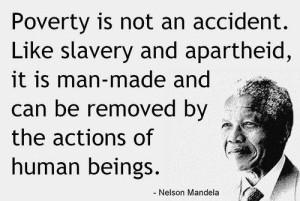
Children all over the world have a right to quality education and this fundamental right is very important to achieving growth and sustaining a healthy society. Education can be the difference in a child’s life that helps them to break the cycle of poverty, earn an income for their families and lift themselves up into a better situation.
Education in Africa
One of the main reasons for the low rates of education in Africa is the lack of appropriate schooling facilities. Also, it is difficult for schools in Africa to employ teachers, because there are not very many suitably qualified people and they can only offer very low pay. Schools in the remote and rural areas suffer the most, because the educated people are likely to move to the big cities or even to travel overseas so that they can enjoy higher pay.
Often, the teachers in rural African schools will have very few teaching aids or textbooks and they will be less trained. This means that the children in these rural schools will not perform as well on standardised tests.
Also, many children in rural communities will not stay in school for a number of reasons. They might have to walk several miles to get to school or they might have the responsibility of taking care of their younger brother or sister, or a sick family member.
The Effect on the Community
These problems with the education system in Africa will hold back the entire community and will prevent the next generation from breaking out of the cycle of poverty. When a generation of children grows up without an education, they will not have the skills and knowledge to reach their full potential and achieve a better life for themselves and their family. School will allow them to learn the basic skills of mathematics, literacy, critical thinking and life skills that they need to survive and thrive in the world.
Plan UK invests more into basic education than any other area, because this is such an important part of community development. With donations, the charity is able to provide better training for teachers and child care providers. It can also help communities buy teaching supplies, including writing supplies, chalkboards, maps, globes and teaching manuals, as well as classroom equipment and furniture. The donations help to build better schools, which will create more educated children.
Plan UK also supported school-based health and nutrition programs, because healthy and well-nourished children are able to concentrate better on their lessons and learn more effectively. Educational initiatives must also be pursued in tandem with health initiatives, because students can not learn when they are ill.
To find out more about how Plan UK helps to fund education initiatives and offers children and adults in developing countries valuable learning opportunities through child sponsorship, visit their ‘sponsor a child’ webpage at http://www.plan-uk.org/sponsor-a-child/ today. With your donation, you can help to improve education in these communities and give the children of tomorrow a hope for a better future.

